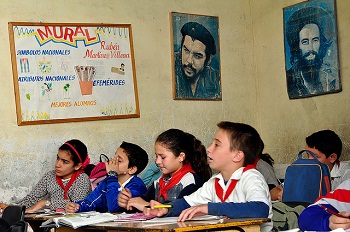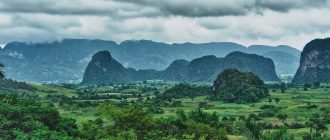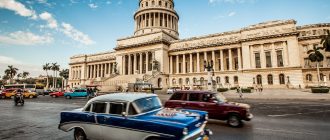Are you interested in the education system in Cuba? Want to know more about the successes of the education system in Cuba? Our guide to the education system in Cuba provides you with the facts and information you’ll want to know.
Education in Cuba has been one of the great successes of the revolution in Cuba. Before the revolution in Cuba, one quarter of the population in Cuba received no education and was illiterate; however, since the revolution in Cuba, literacy levels have soared due to comprehensive education policies introduced to Cuba. Today thanks to the comprehensive education system in Cuba the literacy rate stands at 95%. Cuba offers a comprehensive education system that is one of the best in the world. All education in Cuba is free to its citizens.
Rural Education in Cuba
Prior to the revolution in Cuba very few inhabitants of the rural areas of Cuba received any sort of education. After the revolution, the education of the rural masses of Cuba became a top priority, and for eight months all schools in the city were closed down and teachers and students were sent into the rural areas en masse to provide education to rural communities of Cuba. Today in Cuba, special rural schools have been set up to cater for the rural communities of Cuba. These schools are located amongst the local communities making it easier for children to receive their education while living at home. In addition, the education provided at these schools in Cuba takes into account the rural lifestyle of the students and provides time for them to work on agriculture in the fields at the same time as receiving an education.
Further Education in Cuba
University education is free to all students in Cuba. The education provided at these universities in Cuba is of a high standard and the teachers are often Doctorate degree holders. Many students from other countries come to receive their further education in Cuba due to the cheaper costs and good standards of education on offer. University graduates in Cuba are expected to serve two years community service in the discipline in which they received their education, usually in poor rural communities in Cuba, and for a very low wage.





